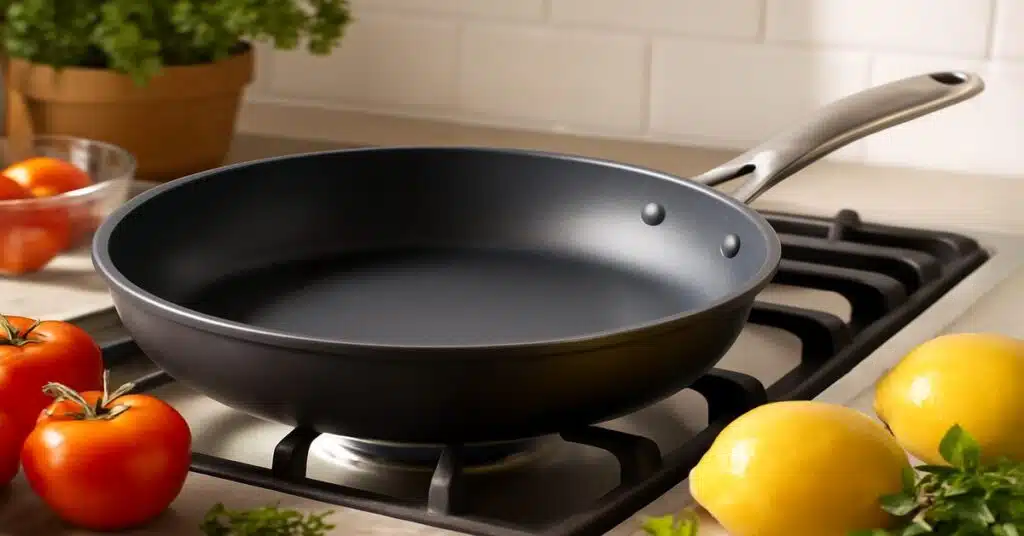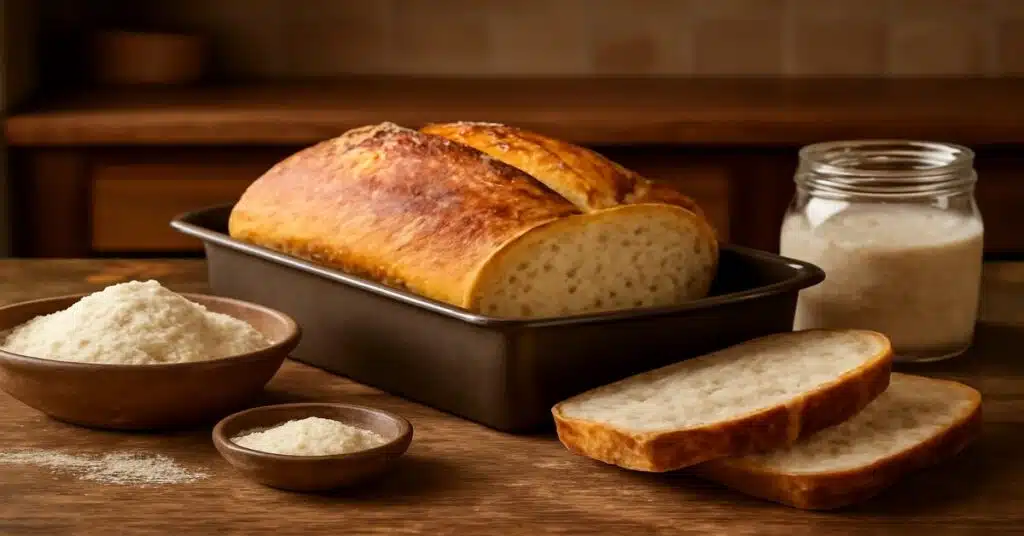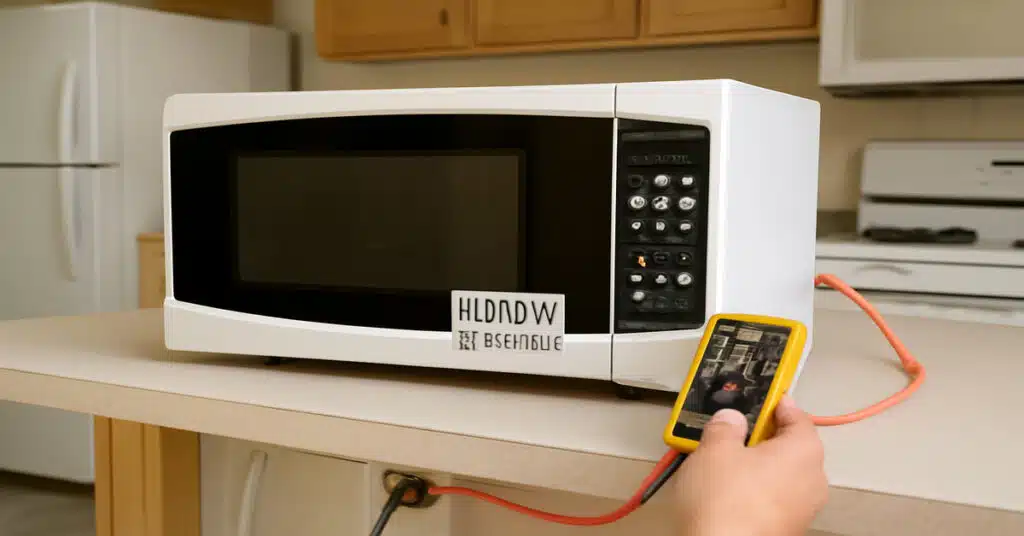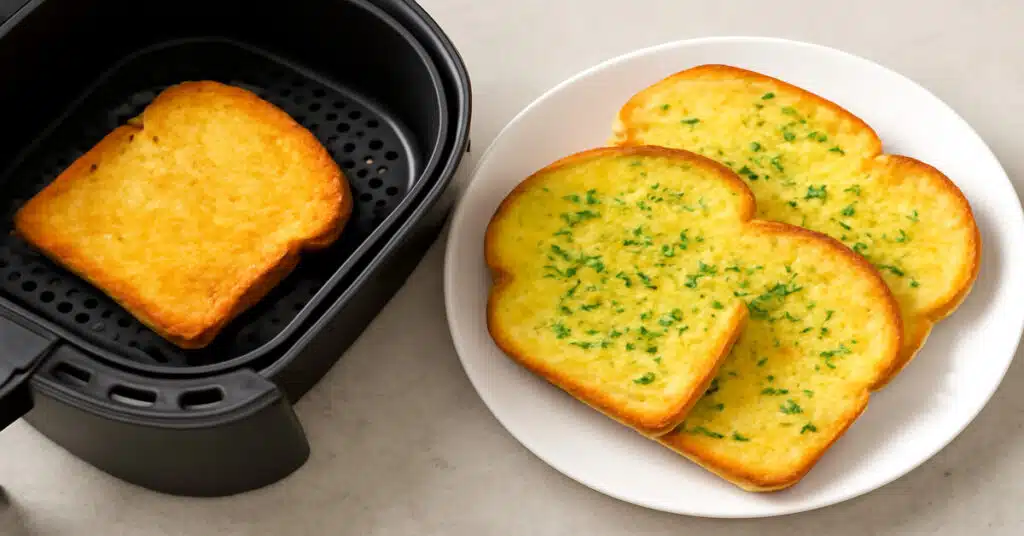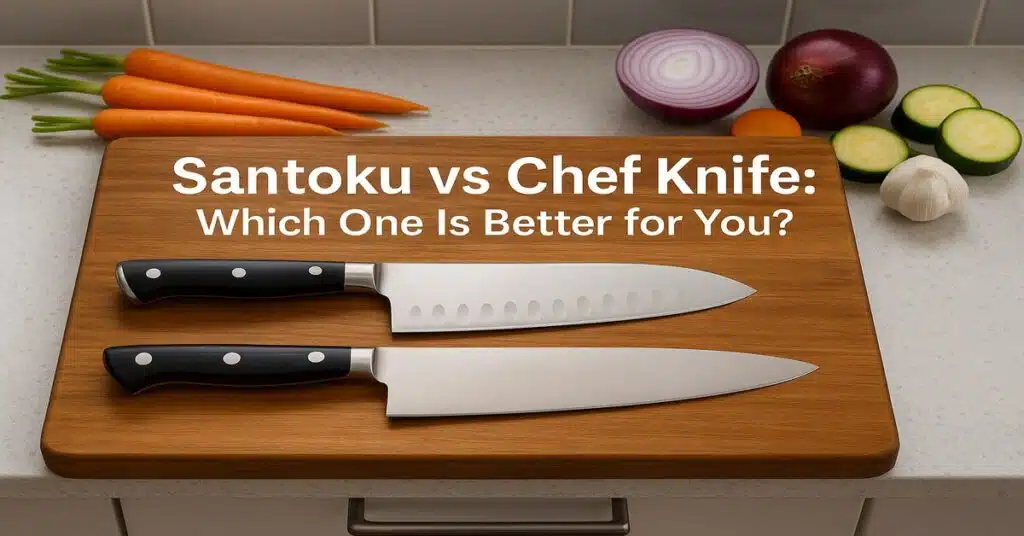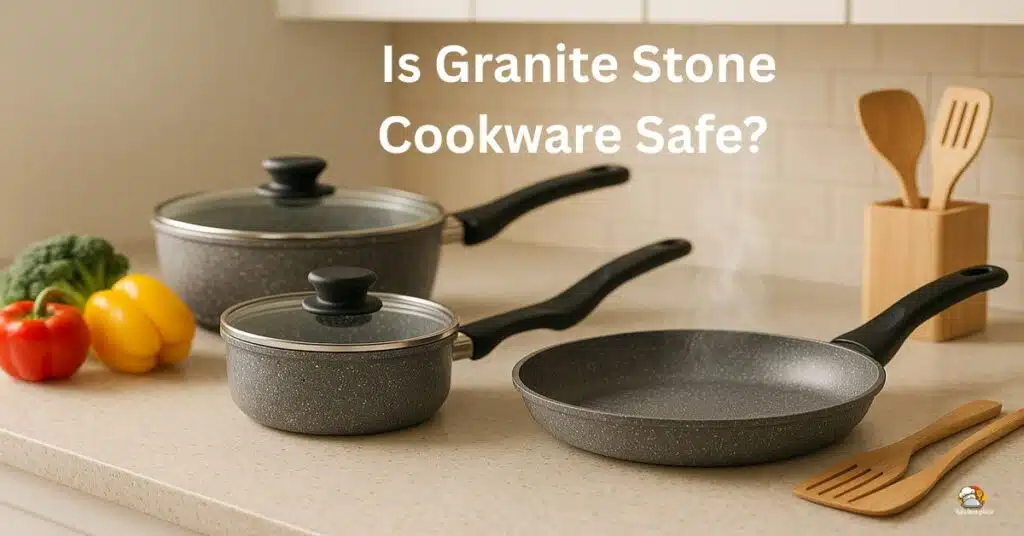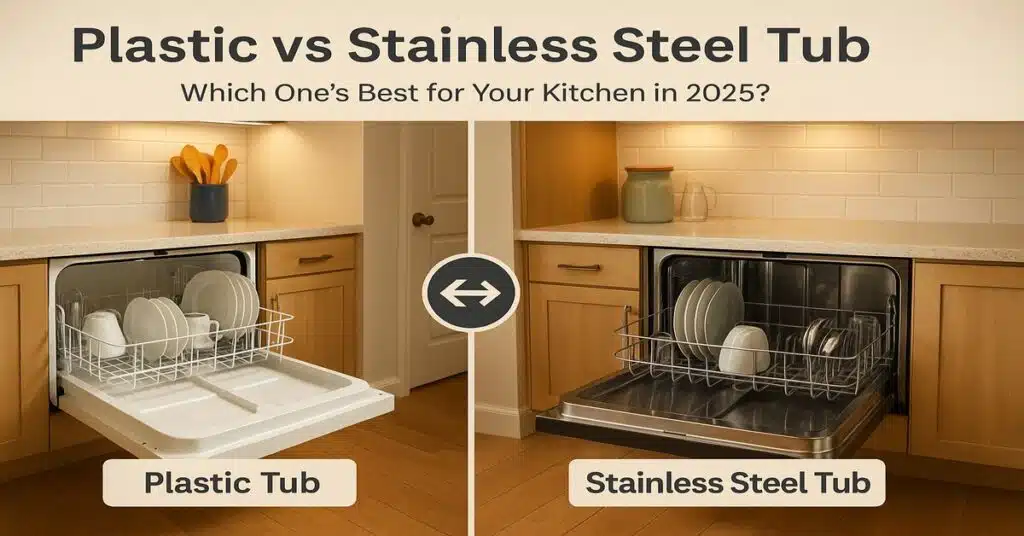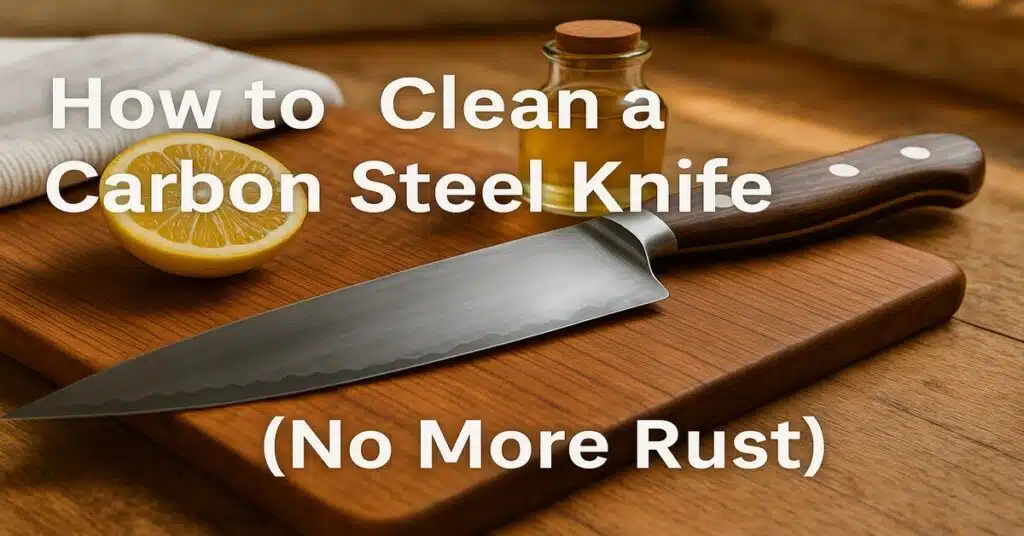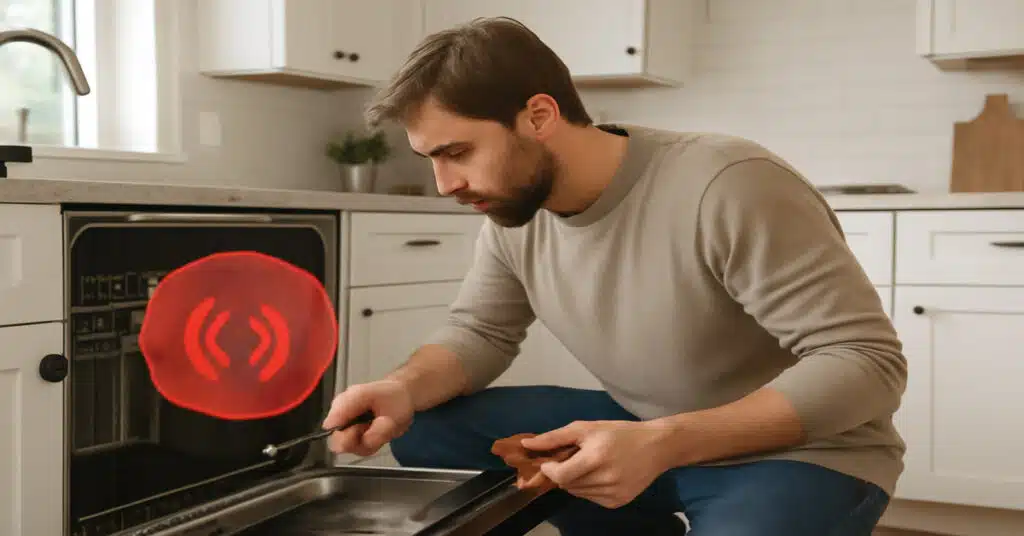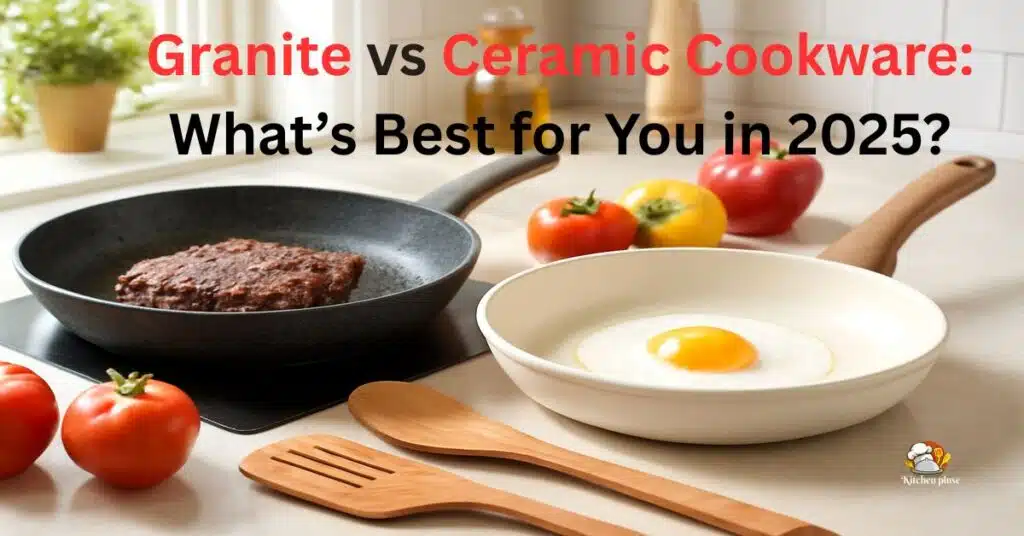Yes, hard anodized aluminum cookware is safe to use.The U.S. Food and Drug Administration (FDA) confirms that anodized aluminum is chemically stable, non-reactive, and does not release metal into food when the surface is not damaged. You can cook with it every day without worrying about health risks or metal contamination.
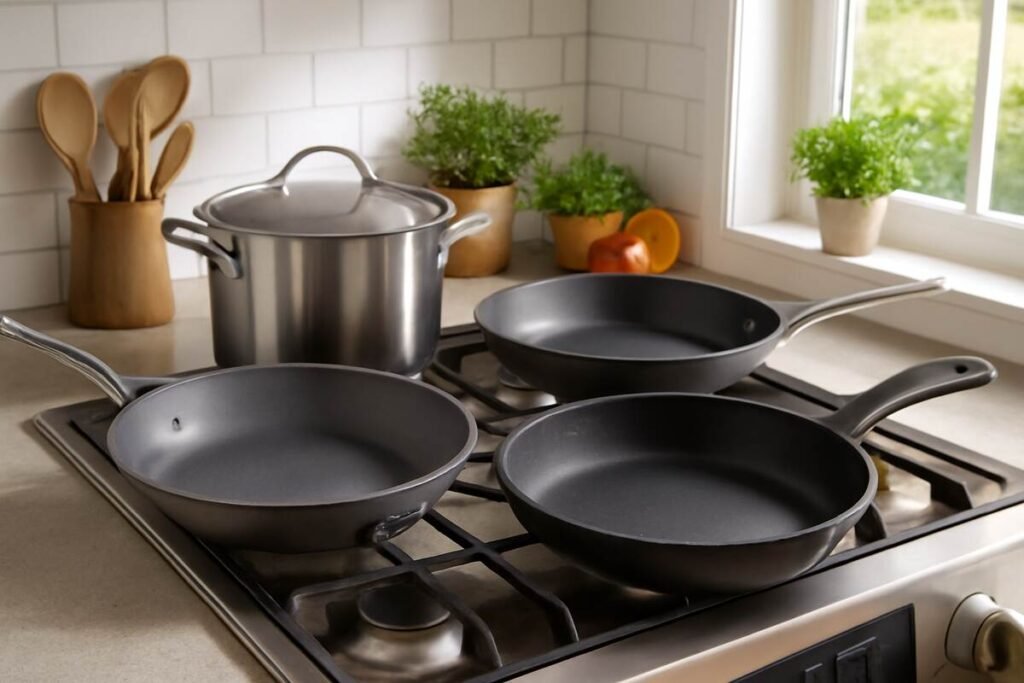
Cooking safely is about more than taste — it’s about trust, science, and smart choices in your kitchen.If you have ever wondered, “Is hard anodized aluminum cookware safe?”, you’re not alone. Many American home cooks ask this question after hearing mixed opinions about aluminum and health.
Hard anodized cookware is now a favorite in U.S. kitchens — from small New York apartments to large California homes — because it’s strong, durable, and safe for daily use. The anodizing process builds a hard protective layer on the metal surface that keeps aluminum from touching your food, even when cooking acidic meals such as tomato sauce or lemon dishes.
Expert Insight:
The FDA and food-safety researchers agree that hard anodized aluminum cookware is safe, long-lasting, and non-leaching — as long as the coating stays smooth and unbroken.
In this 2025 updated guide, you’ll learn:
- The simple science behind anodization and how it keeps your food safe
- Why it’s safer than regular aluminum or low-cost nonstick pans
- Easy care tips to help your cookware last for years
- How it performs across different American climates — from humid Florida to dry Arizona
By the end, you’ll see why hard anodized aluminum cookware is one of the safest and most trusted options for modern U.S. kitchens.
👉 If you want to explore long-lasting premium options, check our guide on Best Hard Anodized Cookware.
What Is Hard Anodized Aluminum Cookware?
Hard anodized aluminum cookware is made from pure aluminum that goes through a process called anodization. In this process, electricity is used to make the metal harder and stronger. A thick, protective layer forms on the surface, keeping the aluminum from reacting with food or water.
This layer makes the cookware safe, smooth, and long-lasting, even when used daily in U.S. kitchens — from humid Florida to dry Arizona.
Unlike regular aluminum pans, which can bend or release metal into food, hard anodized cookware stays stable even under high heat. It gives you even cooking, long durability, and strong performance — which is why both chefs and home cooks love it.
Expert Note:
The U.S. Food and Drug Administration (FDA) says anodized aluminum cookware is chemically stable and non-leaching. That means the metal doesn’t mix with your food when used correctly.
Key Benefits of Hard Anodized Cookware:
- Safe and Non-Reactive: The anodized layer stops aluminum from touching your food.
- Even Heat: Food cooks evenly without burning or cold spots.
- Durable and Scratch-Resistant: Tougher than stainless steel or cheap nonstick pans.
- Acid-Resistant: Safe for cooking tomato, lemon, or vinegar-based dishes.
- Easy to Clean: Smooth surface resists stains and buildup.
- Long-Lasting: Designed to serve you for many years with simple care.
Many hard anodized cookware reviews mention that these pans perform better than both nonstick and regular aluminum cookware in terms of safety and longevity.
👉If you’d like to see a full list of pros and cons, read our in-depth post: Hard Anodized Cookware Pros and Cons
How Safe Is Hard Anodized Aluminum Cookware?
I often asked myself, “How safe is hard anodized cookware?
After researching and cooking with it for months, I discovered that safety is one of its best features — and science supports that too.
The special anodized coating forms a hard, sealed layer that stops aluminum from reacting with your food. So even when you cook acidic dishes like tomato sauce, lemon chicken, or vinegar-based meals, no harmful metals leach into your food.
Most modern hard anodized cookware meets strict U.S. Food and Drug Administration (FDA) safety standards. Think of it like a protective shield — a raincoat that keeps the metal underneath safe while you cook confidently.
Hard Anodized Cookware Health Risks — What Science Says
Hard anodized cookware is made by passing electricity through aluminum to harden it. This creates a non-reactive oxide layer that seals the surface completely. But is it totally safe? Let’s look at what experts say.
What Experts Say
According to the FDA, anodized aluminum cookware is safe for daily cooking. The tough outer layer keeps aluminum from mixing with food — even during high-heat or acidic cooking.
- FDA confirmation: Anodized aluminum is chemically stable and non-toxic.
- Healthline reports that there’s no proven link between anodized cookware and health conditions such as Alzheimer’s.
- Harvard Health Publishing adds that any aluminum exposure from cookware is well below safe daily limits.
In simple terms, when used correctly, hard anodized cookware is as safe as stainless steel or ceramic pans.
Key Safety Benefits:
- No harmful chemicals: Most anodized cookware is PTFE- and PFOA-free, unlike older nonstick pans.
- Non-reactive surface: Doesn’t absorb flavors or release toxins.
- Heat-resistant: Safe for high temperatures up to around 450°F (232°C).
- Durable and easy to clean: The tough oxide layer resists scratches and corrosion.
What to Watch Out For:
Even though hard anodized cookware is safe, damage to the surface can expose the aluminum underneath.
To keep your cookware safe and long-lasting, follow these simple care tips:
- Avoid deep scratches or using metal utensils.
- Use soft silicone, wooden, or nylon tools instead.
- Clean gently with mild soap and a soft sponge — never use steel wool.
- Avoid storing acidic foods like tomato sauce overnight in the pan.
- With proper care, your cookware will stay safe, strong, and shiny for many years.
Hard anodized aluminum cookware is FDA-approved, non-toxic, and safe for daily use in U.S. homes. When you handle it properly, it offers a perfect mix of safety, durability, and performance. If you’re upgrading your kitchen in 2025, hard anodized cookware remains one of the smartest and safest choices for your family.
👉Want to see the full comparison? Check our complete guide Hard Anodized vs Cast Iron
Common Safety Concerns and Health Risks
Many people worry about whether aluminum cookware is harmful or if they should avoid it for health reasons. According to recent studies, old or scratched aluminum pans may release small amounts of metal into food. However, hard anodized cookware has a sealed, non-reactive layer that prevents aluminum from touching your food — making it much safer for everyday use in U.S. kitchens.
Is Hard Anodized Cookware Toxic?
No — it’s not toxic.
The anodized layer created during manufacturing acts as a protective barrier between the metal and your food. Even when cooking acidic meals such as tomato sauce or lemon chicken, no aluminum leaches into food. This makes it one of the safest choices for health-conscious home cooks across America.
Expert Insight
According to the U.S. Food and Drug Administration (FDA) and Healthline, properly anodized aluminum cookware is chemically stable, non-leaching, and food-safe. It’s considered safe for daily cooking, as long as the surface remains smooth and free from deep scratches or dents. Healthline also notes that aluminum exposure from anodized cookware is well below the safe daily limit set by international food-safety organizations.
Real Experience:
From my own experience and testing, many new users worry at first —but they quickly realize that hard anodized cookware feels solid, heats evenly, and stays safe even after years of daily use. It’s the perfect balance between performance, protection, and peace of mind, especially for modern U.S. kitchens where safety and durability matter most.
Verdict:
Hard anodized aluminum cookware does not pose any proven health risks. When used correctly and kept scratch-free, it remains one of the safest, most reliable, and FDA-recognized cookware options for American homes in 2025. Its non-reactive layer, strong build, and toxin-free surface make it a long-term healthy choice for your kitchen.
👉 Learn more in our detailed comparison: Hard Anodized vs Stainless Steel Cookware — find out which material suits your cooking style best.
Comparing Hard Anodized Cookware with Other Materials
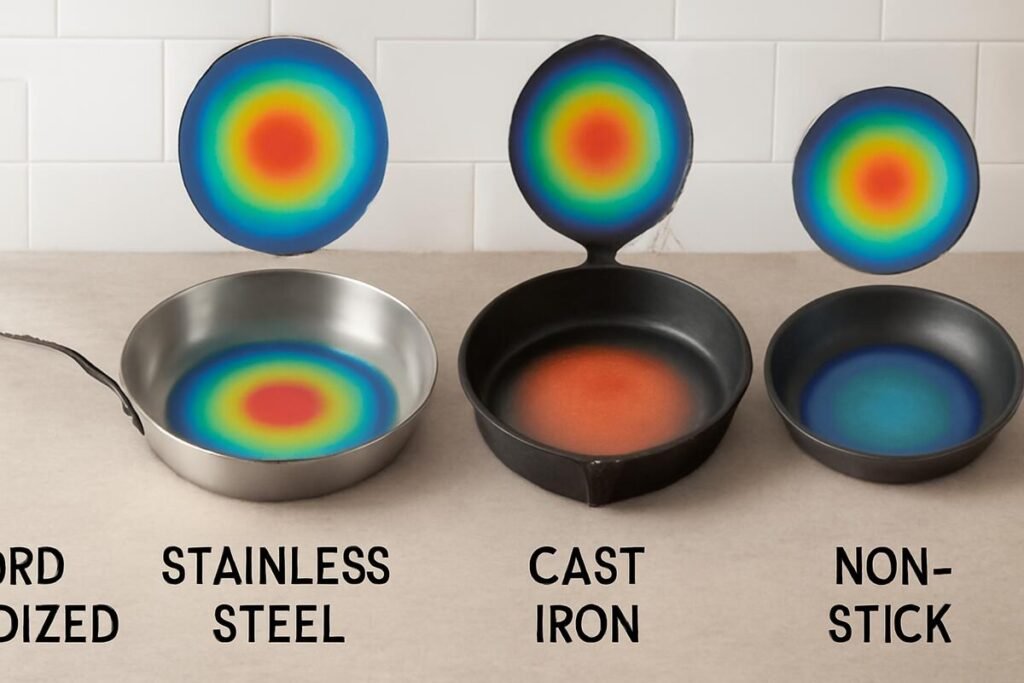
People often ask how hard anodized aluminum compares to stainless steel or non-stick pans.
- Hard anodized cookware is strong and safe, with a tough sealed surface safer for daily use than some non-stick pans that can chip or release chemicals.
- It heats faster and more evenly than stainless steel, which is also safe but can cook unevenly.
- If you want non-toxic options, hard anodized aluminum is great. Cast iron is another safe choice but needs more care and seasoning.
In my kitchen, I use different cookware types, but hard anodized pans give me great heat control, durability, and confidence.
Hard Anodized vs. Other Cookware Types
| Cookware Type | Safety Level | Heat Conductivity | Toxic Risk | Maintenance |
|---|---|---|---|---|
| Hard Anodized Aluminum | ✅ Very Safe | 🔥 Excellent | ❌ Low | ✅ Easy |
| Stainless Steel | ✅ Safe | ⚠️ Moderate | ❌ None | ⚠️ Moderate |
| Regular Non-Stick | ⚠️ Can be risky | 🔥 Good | ⚠️ Moderate (PTFE risk) | ✅ Easy |
| Cast Iron | ✅ Safe (if seasoned) | ⚠️ Slow | ❌ None | ⚠️ High |
| Ceramic | ✅ Safe | ⚠️ Moderate | ❌ None | ✅ Easy |
Is Hard Anodized Cookware Better Than Nonstick?
Many American home cooks often ask, Is hard anodized cookware better than nonstick?
The short answer is — Yes. For safety and durability, hard anodized cookware is the smarter choice.
While nonstick pans are great for quick, low-oil meals, their coatings can wear off or release fumes if overheated. In contrast, hard anodized aluminum cookware handles high heat without breaking down. Its anodized layer forms a permanent barrier that keeps it non-reactive, scratch-resistant, and toxin-free.
Quick Comparison: Hard Anodized vs Nonstick
| Feature | Hard Anodized Cookware | Nonstick Cookware |
| Safety | Chemically stable and FDA-approved | Can release fumes if overheated |
| Durability | Extremely strong and scratch-resistant | Coating can chip or peel |
| Heat Resistance | Up to 450°F (232°C) | Usually safe up to 400°F (204°C) |
| Cleaning | Easy to clean; no special care needed | Must avoid metal utensils |
| Toxin-Free | Yes — PTFE- and PFOA-free | Depends on coating type |
| Lifespan | 5–10 years or more | 1–3 years on average |
Expert Insight:
According to the U.S. Food and Drug Administration (FDA),properly anodized cookware is food-safe and chemically stable. Nonstick coatings are also considered safe, but only when used below their heat threshold (around 400°F). That’s why professional chefs and health-conscious families prefer hard anodized cookware .It lasts longer and remains toxin-free even with daily use.
If you cook often and value safety, strength, and longevity, hard anodized aluminum cookware clearly wins.
It gives you the nonstick convenience without the risk of coatings flaking or releasing fumes.
For quick breakfasts, nonstick pans work fine. But for long-term, high-heat, or family use, anodized cookware is the better investment for U.S. kitchens.
👉Want to see the full comparison? Check our complete guide Hard Anodized vs Nonstick Cookware to explore performance, cleaning, and safety details side by side.
How to Care for Hard Anodized Cookware Safely
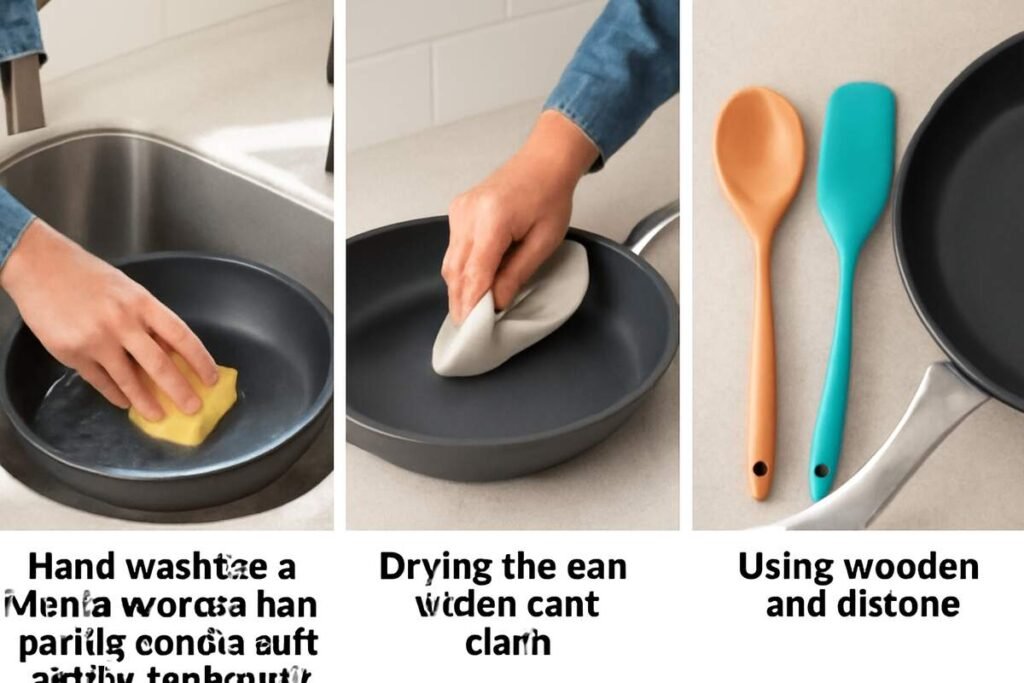
Taking care of your hard anodized cookware the right way keeps it safe, shiny, and long-lasting. Follow these simple U.S. kitchen–friendly tips to protect your pans and make them last for years.
Cleaning and Washing Tips:
- Avoid harsh scrubbing pads or steel wool.
Use a soft sponge or non-abrasive cloth to clean without scratching the surface.
- Wash with warm water and mild dish soap.
Skip bleach or strong detergents — they can dull the finish.
For stuck-on food, soak the pan for 10–15 minutes before washing. - Never use metal utensils.
Choose wooden, silicone, or nylon tools to prevent scratches. - Dry completely after washing.
Wipe with a towel or air-dry the pan to avoid water spots or rust near the rivets.
Bonus Tips:
- Store pans carefully. Avoid stacking without a soft cloth or paper towel between them.
- Use medium heat. Hard anodized cookware spreads heat evenly — no need for extreme temperatures.
- Avoid aerosol sprays. They can leave sticky residue that’s hard to remove over time.
With gentle cleaning and mindful use, your hard anodized cookware will stay safe, strong, and beautiful for many years.
These simple habits protect the surface, maintain its shine, and ensure it performs like new every day.
👉 Want a step-by-step cleaning routine? Check our full guide: How to Clean Hard Anodized Cookware (Without Damaging It)
Is Hard Anodized Cookware Safe for Everyday Use?
Yes — hard anodized aluminum cookware is completely safe for everyday use when you handle it properly.
Its anodized coating acts like a protective barrier that prevents aluminum from mixing with your food, even during high-heat or acidic cooking.
So whether you’re making tomato sauce, lemon chicken, or curries — you can cook safely without worrying about metal leaching or unwanted reactions.
This durable surface also makes hard anodized cookware scratch-resistant, long-lasting, and non-reactive, so it keeps both your food and cookware in great shape. That’s why home cooks and professional chefs across the U.S. trust it for daily cooking.
From my own use, I’ve noticed that hard anodized cookware keeps performing like new — it heats evenly, cleans easily, and stays shiny and safe even after months of daily cooking.
Want to see how hard anodized cookware compares with other materials?👉 Check out Hard Anodized vs Stainless Steel Cookware (2025 Comparison Guide).
Benefits of Choosing Hard Anodized Cookware
Pros and Cons of Hard Anodized Cookware:
Pros:
- Sealed non-reactive surface prevents aluminum leaching
- Durable, scratch-resistant surface
- Excellent heat distribution
- Easy to clean and low maintenance
- Safe for acidic foods
Cons:
- Not always dishwasher-safe
- Not compatible with induction cooktops
- Can be more expensive than regular non-stick
Thinking of new cookware? Hard anodized cookware offers many benefits based on my experience:
- Durable and strong: Resists scratches, dents, and rust better than many pans.
- Even heat: Heats quickly and spreads heat evenly, preventing hot spots.
- Easy to clean: Smooth surface stops food from sticking, making cleanup simple.
- Safe for cooking: The anodized coating stops aluminum from mixing with food, even acidic dishes.
- Non-toxic and reliable: Unlike some non-stick pans, it doesn’t release chemicals or chip easily.
From my kitchen to many chefs’, hard anodized cookware is a favorite for strength, safety, and performance. It’s a smart investment that lasts and cooks well.
(FAQs)
Is hard anodized aluminum cookware safe to use every day?
Yes, it’s completely safe for everyday cooking. The U.S. Food and Drug Administration (FDA) confirms that hard anodized aluminum is chemically stable and non-reactive, meaning it won’t leach metal into your food. As long as you avoid deep scratches or harsh cleaning, it stays safe for years of daily use.
What are the disadvantages of hard anodized cookware?
The main disadvantages are that it’s not dishwasher-safe and can cost slightly more than regular nonstick pans.
You’ll also need to avoid metal utensils to protect the coating. However, these are minor compared to its safety, durability, and heat performance advantages.
Is hard anodized cookware safe when scratched?
Light surface scratches are normal and don’t make it unsafe. But if the coating is deeply damaged, it may expose the raw aluminum underneath. In that case, avoid cooking acidic foods like tomatoes or lemon. The FDA confirms anodized cookware remains food-safe as long as most of the coating is intact.
Does hard anodized cookware cause cancer?
No — there’s no scientific evidence linking anodized cookware to cancer. According to FDA and Harvard Health, properly anodized aluminum is non-toxic, non-leaching, and safe for all types of cooking. It contains no harmful chemicals like PTFE or PFOA.
Which is better, hard anodized or stainless steel?
Both are safe, but hard anodized cookware heats faster and distributes heat evenly. Stainless steel is stronger but can develop hotspots and often needs more oil. For quick and efficient daily cooking, hard anodized cookware offers a better balance of safety and performance.
👉 Read the full comparison: Hard Anodized vs Stainless Steel Cookware (2025 Guide)
Which is better, hard anodized or nonstick?
Hard anodized cookware is generally safer and longer-lasting. Nonstick pans can release fumes or peel if overheated, while anodized cookware stays solid, scratch-resistant, and toxin-free.
👉 Compare here: Hard Anodized vs Nonstick Cookware (2025 Comparison)
How should I clean hard anodized cookware?
Wash by hand using warm water and mild dish soap. Avoid harsh scrubbers or metal utensils — instead, use a soft sponge or silicone tools to prevent scratches. Dry completely after washing to avoid water spots.
👉 Full guide: How to Clean Hard Anodized Cookware (Without Damaging It)
Final Thoughts:
Choosing safe cookware is important — not just for good food, but also for your family’s health.
Among all options, hard anodized aluminum cookware stands out as one of the safest and most practical choices for U.S. kitchens.
Its protective anodized layer prevents aluminum from reacting with food, even when you cook acidic meals like tomato sauce or lemon dishes. This means you can enjoy safe, toxin-free cooking every day without losing flavor or performance.
Hard anodized cookware also heats evenly, cleans easily, and lasts for years when handled with care.
Avoid harsh scrubbing pads, metal utensils, and frequent dishwasher use — and your cookware will stay strong, shiny, and safe for the long term.
If you want cookware that’s safe, durable, and easy to use, hard anodized aluminum is one of the smartest investments for your modern kitchen.
👉 Want to find the best cookware sets for your kitchen? Explore our expert-tested list of Best Hard Anodized Cookware Sets to compare top brands, durability, and real user performance.
About the Author :
MD Soazim is a cookware safety writer and kitchen product reviewer specializing in hard anodized aluminum cookware and non-toxic cooking tools. He creates evidence-based guides on FDA-approved cookware safety, helping U.S. home cooks choose products that are safe, durable, and toxin-free. His research-backed articles aim to answer real questions like “Is hard anodized aluminum cookware safe?” so readers can cook confidently every day.

